The British TV series The Office (2001-2003) chronicles the hapless lives of white-collar workers at the Slough branch of the Wernham Hogg paper company as they’re filmed by a documentary film crew. The series, created by Ricky Gervais and Stephen Merchant was adapted for U.S. television by Greg Daniels who moved the action across the pond to Scranton, PA. The U.S. version features an entirely different cast of characters (although not entirely dissimilar to some of their U.K. counterparts), and the fictional Wernham Hogg became Dunder Mifflin. The result is The Office (2005-2013) which remains one of the best and most popular workplace comedies of all time.
Both The Office (U.S.) and The Office (U.K.) capture the mundanity, drudgery and sometimes absurdity of toiling away at a 9 to 5 job but also manage to do so in ways distinct to each incarnation. Here are five things The Office (U.S.) does better than The Office (U.K.), and five areas where the original surpasses its adaptation.
U.S. Does Better Than U.K.: Focuses On Office Romances

Receptionist Pam and salesman Jim quickly establish themselves as the “Will they or won’t they?” couple of the U.S. version of The Office. They aren’t the only co-workers who find love in the workplace: Michael and Holly, Dwight and Angela and Kelly and Ryan all turn out to be enduring love stories.
Jim and Pam’s U.K. counterparts, Tim and Dawn, share a mutual attraction, but with obnoxious office manager David Brent monopolizing most of the screen time with his obnoxious antics, and the U.K. series comprised of only 14 episodes, their romance is an underdeveloped subplot. The Dawn-Tim pairing is sweet (their Christmas party kiss is a highlight of the entire series), but their affection for one another isn’t satisfactorily explored. When it comes to mixing business with pleasure, The American Office comes out on top.
U.K. Version Does Better Than U.S.: Makes The Boss Likable
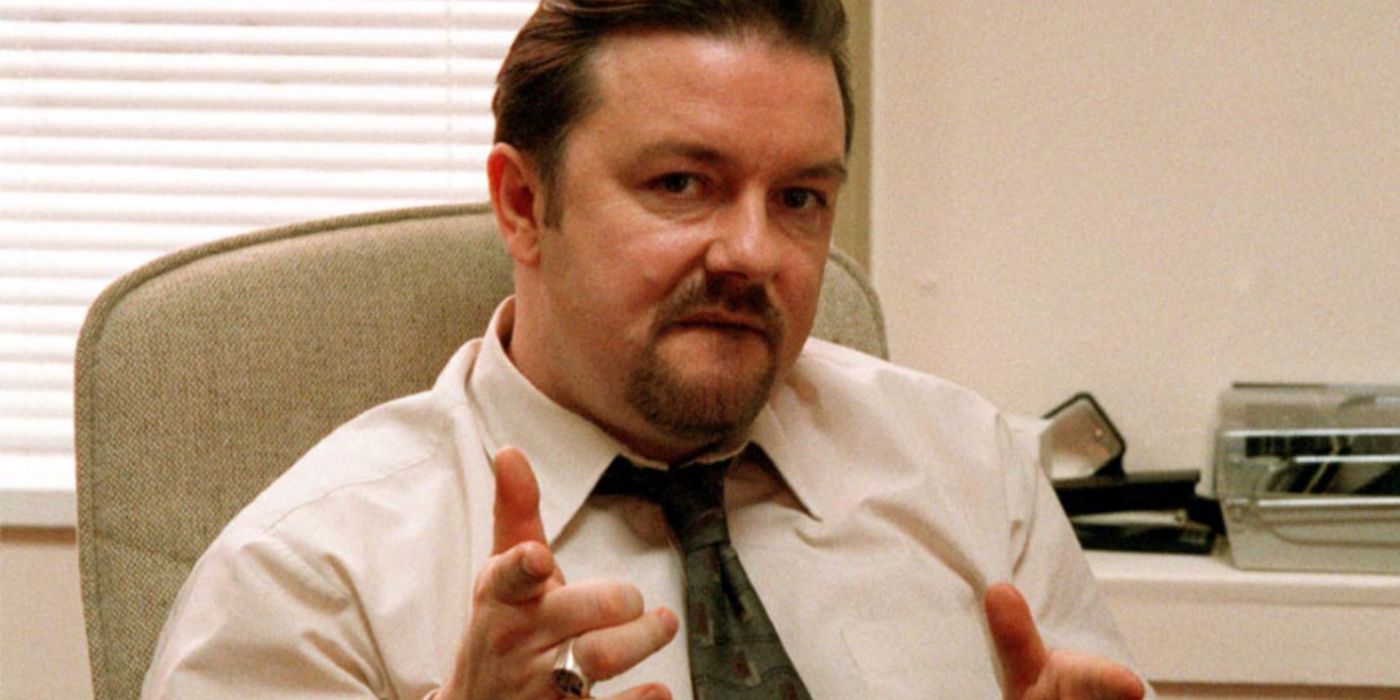
Michael Scott, branch manager at Scranton, and David Brent, branch manager at Slough, have no idea how to yield their power effectively. Michael’s ineptitude leads to poor time management skills and the constant need to disrupt the day-to-day running of the office. David is more obsessed with self-aggrandizing in front of the camera, touting accomplishments while failing to do much of anything.
Both view themselves as well-liked by their respective staffs, but David isn’t nearly as preoccupied as Michael with gaining the approval of his workers. Michael’s yearning for acceptance is the driving force behind everything he does while David’s primary goal is unearned adoration and recognition.
U.S. Does Better Than U.K.: Develops A Strong Ensemble Cast
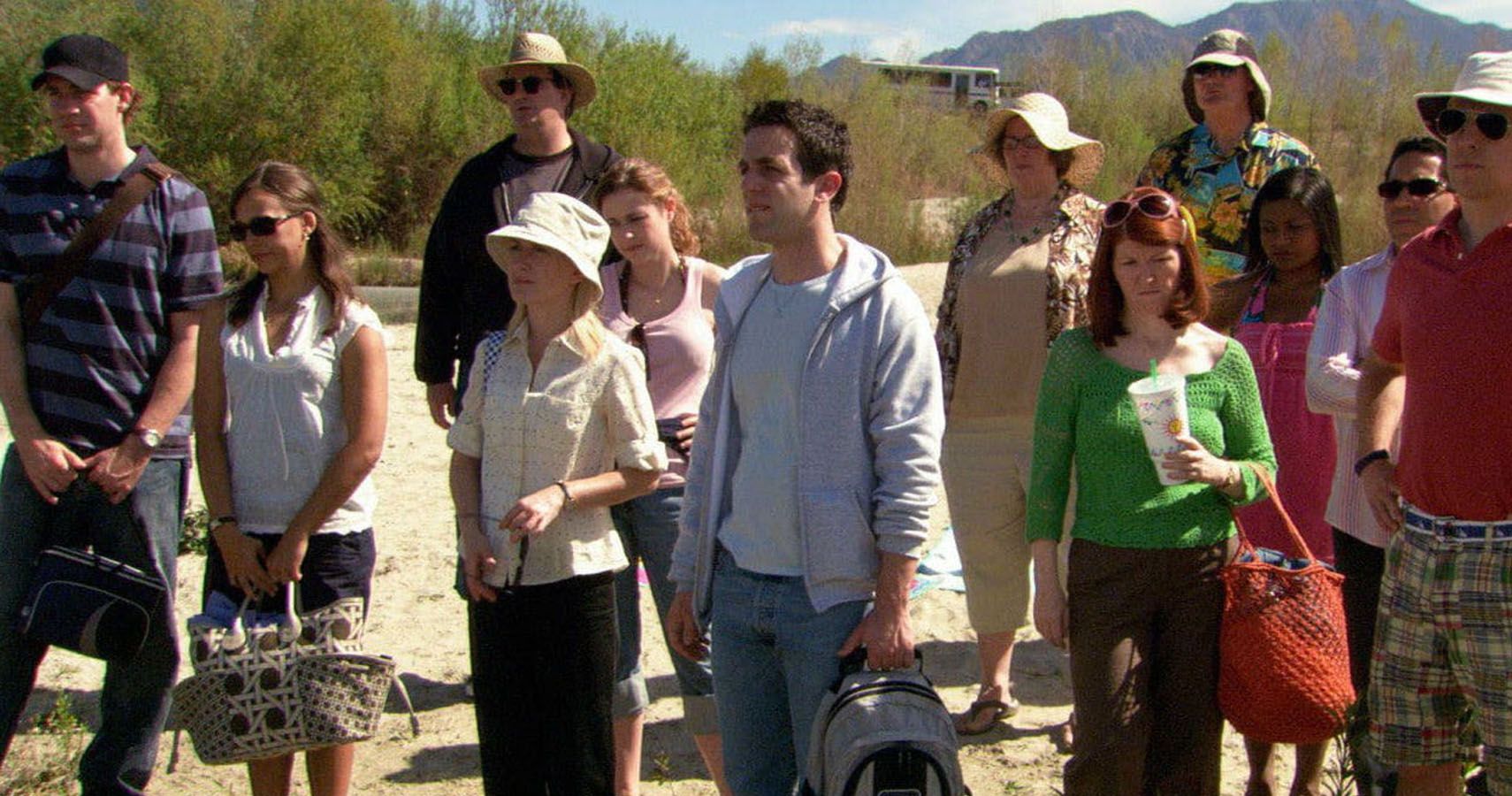
The Office (U.K.) has a lot of worker bees droning away in the background, but only a handful of characters get to step into the spotlight. On The Office (U.S.) every employee becomes an integral part of the show’s success. To grasp the hysterical complexities of office politics, the more personalities that are thrown into the mix, the better.
The Office (U.K.) relies almost entirely on the insufferable David Brent who is at the core of every major storyline while the U.S. version creates a variety of layered characters whose backstories enable the show to continually introduce new plots and subplots whether it’s salesman Stanley’s multiple infidelities, supply relations representative Meredith’s promiscuity and self-soothing through the use of alcohol, or dopey accountant Kevin’s inability to perform simple additions.
U.K. Version Does Better Than U.S.: Captures The Awkwardness Of Work Parties
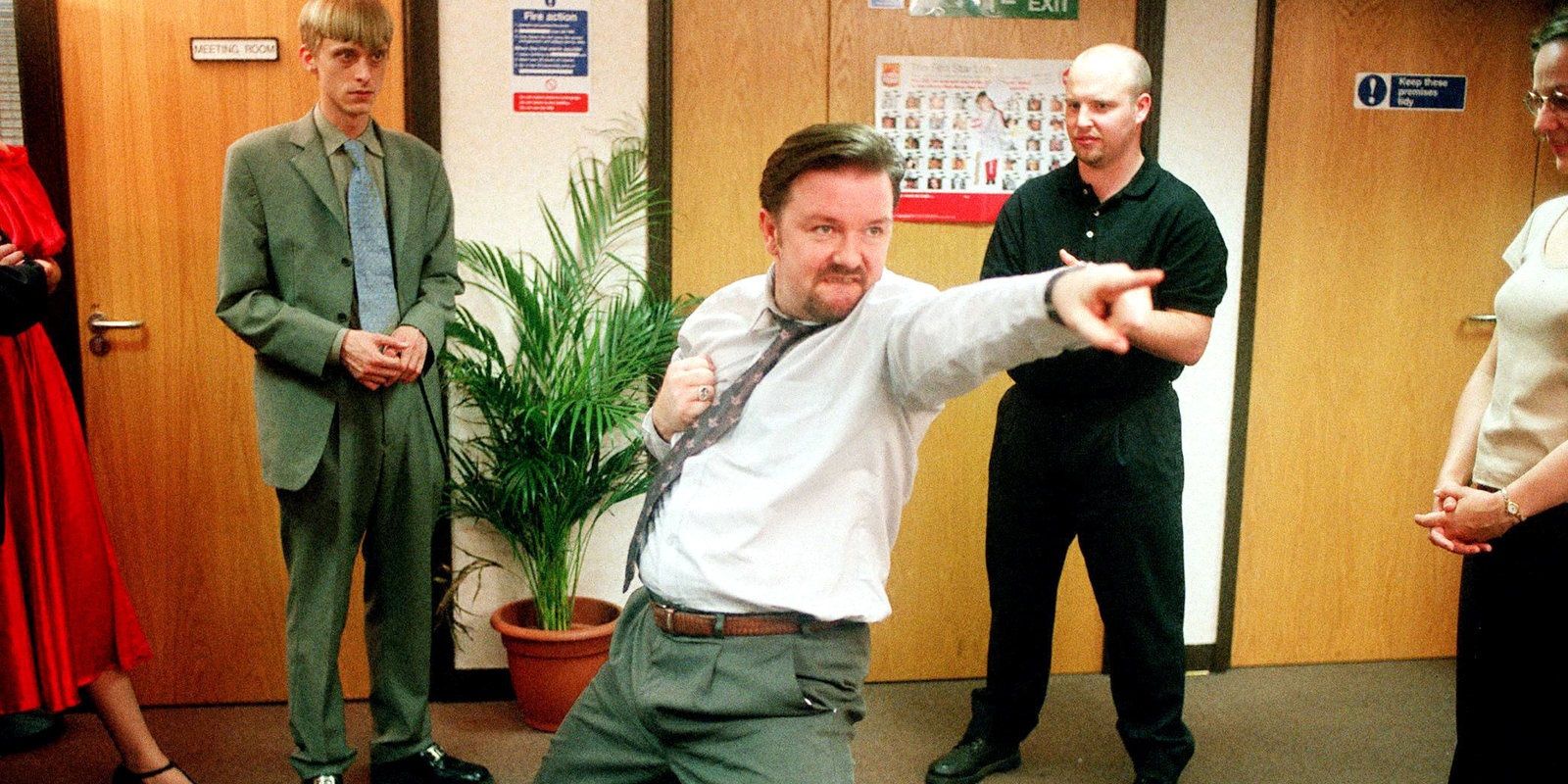
The Office (U.S.) celebrates the disingenuous attempts at forced camaraderie known as office parties, even making the branch’s party planning committee a small but select group of employees who yield a disturbingly overblown amount of power. On The Office (U.K.), the parties focus on how mandatory socializing with co-workers inevitably leads to public humiliation, drunkenness, alienation, awkwardness and general unpleasantness for everyone involved.
The Office (U.K.) adeptly extracts and recreates the worst interactions that occur during the endless blurs of birthday cakes and holiday decorations, reminding us that not fraternizing with co-workers can be a good thing.
U.S. Version Does Better Than U.K.: Easier To Grasp Cultural References
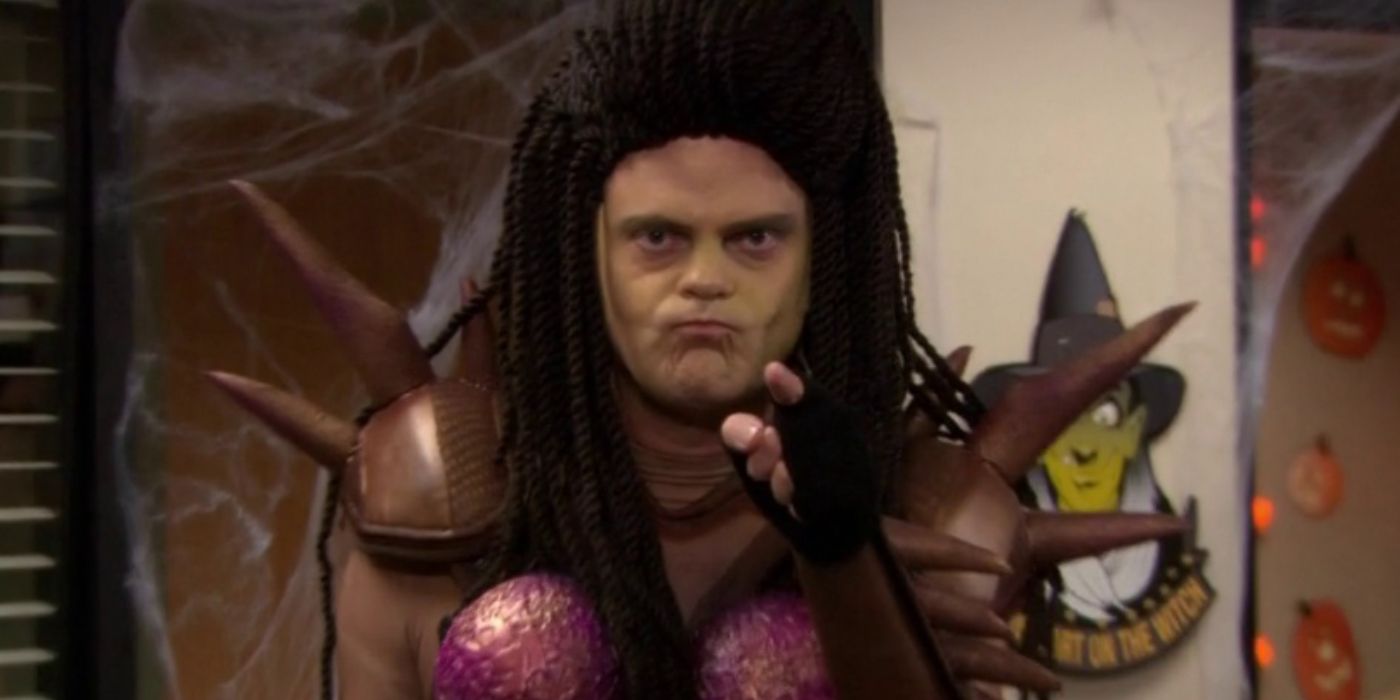
The Office (U.K.) references people, places and multiple areas of pop culture that are specific to its audience, leaving American fans often scratching their heads. The shared drudgery of a 40-hour workweek helps to bridge most of these gaps, but there’s inclusivity to some of the show’s jokes that just don’t work outside the U.K.
The Office (U.S.) is more accessible to American audiences because those references are replaced with things we recognize. Neither show suffers too much from the cultural disparities, and for some, particularly anglophiles, nothing gets lost in translation. But since the U.S. version has undoubtedly reached a larger audience for a longer period of time, it’s hard to not to argue it surpasses its U.K. version when it comes to marginalizing certain inside jokes.
U.K. Version Does Better Than U.S.: Shows Realistic Consequences For Actions
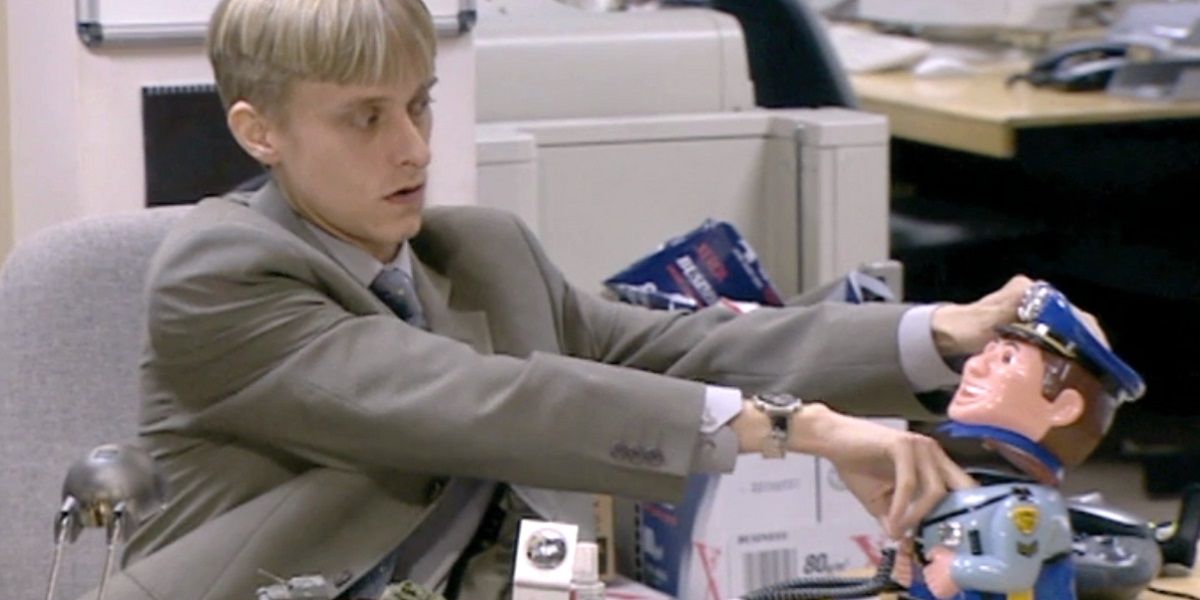
A lingering question when it comes to The Office (U.S.) is how Michael manages to keep his job despite his constant buffoonery and unprofessional behavior. On The Office U.K., David Brent is also offensive and lazy, but there are repercussions as the series progresses.
Both Michael and David resent any form of oversight or criticism, but while Michael is more likely to behave like a puppy that’s peed on the rug when he’s reprimanded, David is unapologetically defiant. Corporate is part of the joke on The Office (U.S.), but on the U.K. version, the higher-ups aren’t in on Brent’s cringe-worthy hijinks.
U.S. Version Does Better Than U.K.: Makes The Boss’ Right Hand Man More Ambitious
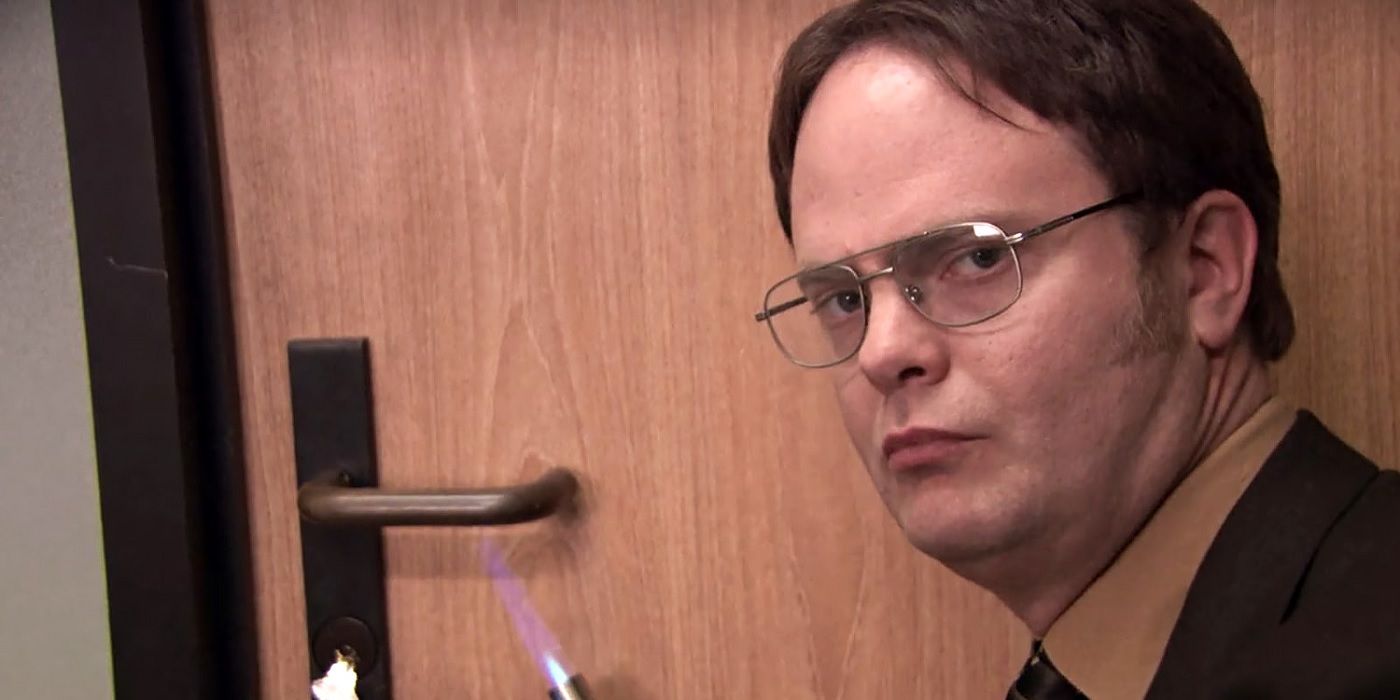
David’s acolyte is the smarmy Gareth Keenan who is surprisingly popular with the ladies, loves to hang with his pals at the local pub and is generally annoying. David’s assistant (to) the regional manager is uber-geek beet farmer and top salesman, Dwight Schrute. Gareth lacks Dwight’s relentless, unyielding desire to do whatever it takes to ascend to the position of branch manager.
Dwight instills rules and policies he can’t enforce. Gareth is more manageable and more apt to fall back than charge ahead which isn’t as enjoyable as watching Dwight attack every aspect of his life with a frightening amount of undeterrable enthusiasm.
U.K. Version Does Better Than U.S.: Establishes More Conflict Between David And His Boss
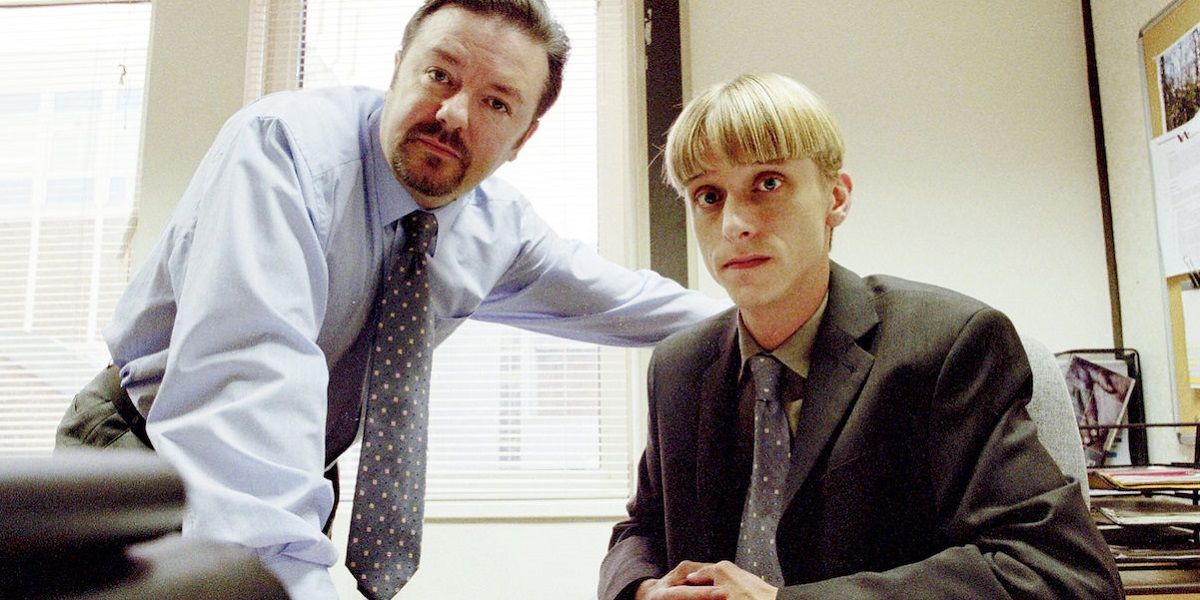
David finds himself constantly at odds with an adversary who is everything David imagines himself to be: handsome, well-respected, well-liked, competent, etc. David might generate more sympathy from viewers if it wasn’t for his refusal to recognize his inevitable self-destruction.
Michael benefits from working at a company where even the executives at corporate are incapable of effectively running a successful company, allowing Michael and his bad behavior to slip through the cracks. Despite what constitutes their best efforts and for reasons that vary, Jan Levinson, Ryan Howard, and Charles Miner all fail to outlast Michael Scott, and he bests them with little confrontation.
U.S. Version Does Better Than U.K.: Provides The Audience With A Happy Ending
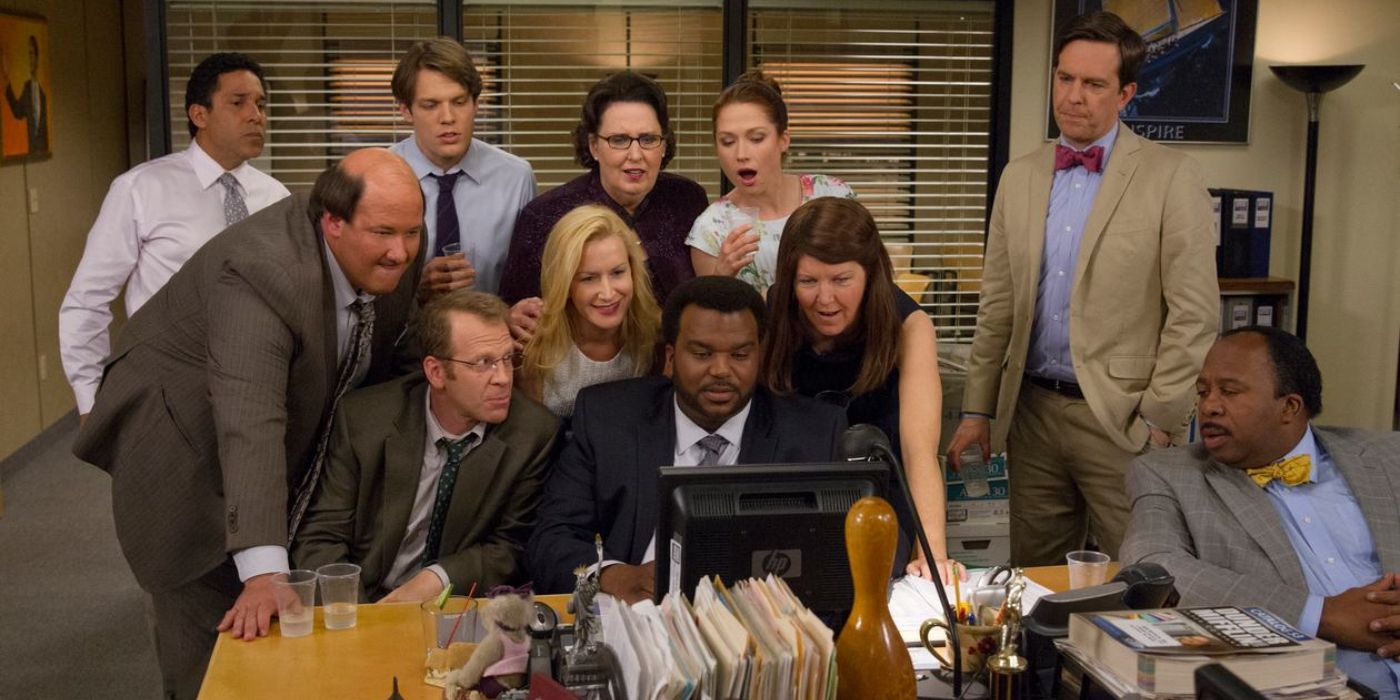
Both series conclude following the airing of the documentary, but very little changes on The Office (U.K.). A few years pass, David, moves on but has trouble letting go, but mostly, life goes on. Some ongoing storylines are tied up. Again, the weight of the finale is on David Brent who finally begins to come to terms with some of his bad choices.
The Office (U.S.) completely diverges from the U.K. version early on, and fans are really invested in seeing how things play out not just for a handful of people but the entire cast, and the show does this well. Some characters finally leave — some likely never to be heard from again. Others stay behind because that’s what people do. They go to work at the same place day after day. But at Dunder Mifflin there are always new challenges looming, so even the ending promises new beginnings.
U.K. Version Does Better Than U.S.: More Adult Humor
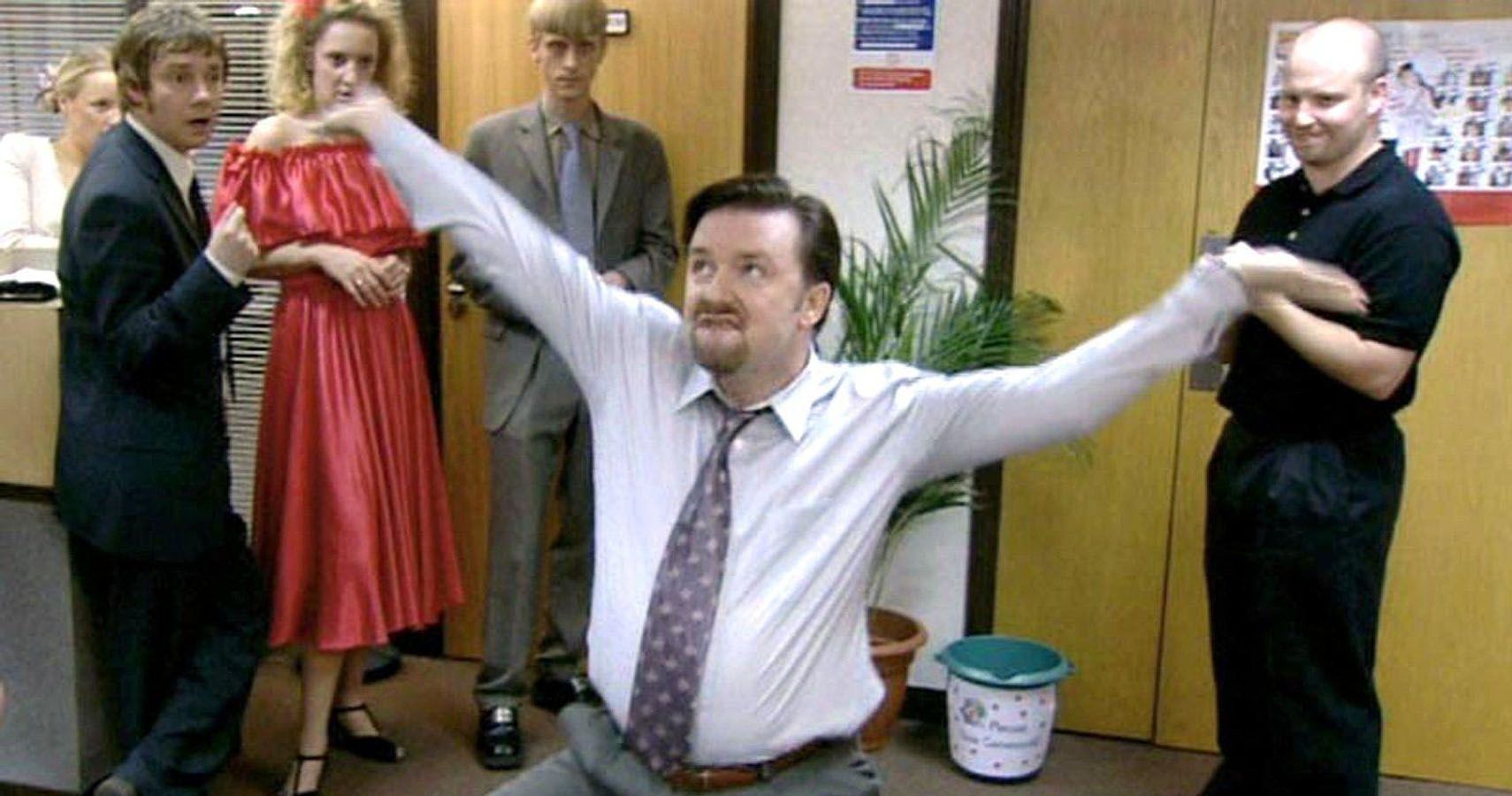
The Office (U.S.) originally aired on network television which means the humor is relatively clean. British TV has lax standards in comparison when it comes to censorship, so The Office (U.K.) can use adult language and introduce more provocative jokes.
The drab surroundings, the relative anonymity of most of the people onscreen and the bawdier humor make The Office (U.K.) a bit bleaker in a way that is realistic when exploring the soul-crushing job of working at a mid-level paper company.




